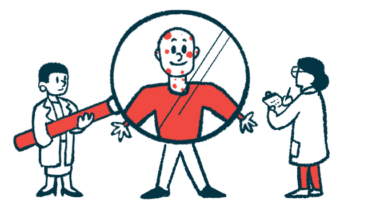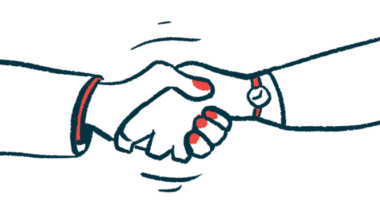The good, the bad, and the brutally honest parts of Cushing’s disease
What to know about your friend with chronic illness

Cushing’s is a fickle disease.
There are days when I can walk without my wheelchair, grab dinner with a friend, and make my way home safely without a problem.
There are also days when I can’t move 5 feet without my wheelchair, have night blindness, and need all of my pain remedies within arm’s length.
And of course, there are days when I think I’m fine, but the pain creeps up on me, or days when I push myself too far and need to toss in the towel earlier than I want.
The good
The problem with having an illness that causes highs and lows in my cortisol levels is that people expect me to be one person or another. If I take the stairs to meet someone for dinner, they expect me to be able to use the stairs every time. I’ve often been met with surprise after saying, “I’m sorry, I can’t go unless the place is wheelchair-accessible.” It’s almost as if one memory of me without my wheelchair has replaced every memory of me with it.
In my experience, many people tend to view chronic illness as something that can be overcome. They think that spending more time in the sun, being active, and embracing the world can help us get better.
But I won’t. I’ll have Cushing’s disease for the rest of my life, and it’ll always affect me. So I want to counter the idea that we get better with a more obvious one: Those of us with chronic illness have good days and bad days. On my good days, I revel in my ability to go to the beach, enjoy day trips, go on dates, and feel a lot less pain than usual (though I’m never truly pain-free).
The bad
On my bad days, my migraines last for hours. My legs hurt so badly I want to cry. I’m nauseous and feel overburdened by my sadness. I coop up in my room with the lights out. Texts go unanswered, and I lose myself in calm music and heated blankets. I’ve learned to accept these days, as they’re an equal part of my life. When I embrace them, they can be peaceful, albeit painful.
I’m still learning to share this side of myself with the people in my life. It’s incredibly difficult trying to set boundaries, especially when I’m met with, “Oh, but please, you have to make it.” As much as I want to make something work, every social obligation I attend requires two days of rest. Sometimes I have to prioritize. It doesn’t mean I love anyone less. Attending an event, knowing I’ll probably spend the next two days in pain, should demonstrate how much I care.
The brutally honest
Having someone with chronic illness in your life can take some adjustments, but it’s so worth it. Some of the kindest, most empathetic people I know are the ones with illnesses.
I wish my loved ones understood the following about my life with Cushing’s:
- I’ll always have Cushing’s disease.
- Sometimes I can’t physically attend an event.
- One good day is not a precedent for a lifetime with chronic illness.
- No single thing will make me better.
- The more willing you are to spend time with me at home, where I can be near my emergency medications and pain relief, the better our relationship can be.
Cushing’s disease has changed my life, and unfortunately, that also means it’s changed how I interact with the people around me. I hope we can continue the dialogue and learn together.
You can follow my journey more closely on TikTok or YouTube.
Note: Cushing’s Disease News is strictly a news and information website about the disease. It does not provide medical advice, diagnosis, or treatment. This content is not intended to be a substitute for professional medical advice, diagnosis, or treatment. Always seek the advice of your physician or other qualified health provider with any questions you may have regarding a medical condition. Never disregard professional medical advice or delay in seeking it because of something you have read on this website. The opinions expressed in this column are not those of Cushing’s Disease News or its parent company, BioNews, and are intended to spark discussion about issues pertaining to Cushing’s.








Comments
Linda Gross
My husband tries so hard to be helpful and understanding about the effects of Cushing's Disease on me and he has learned that my participation in family events and other social gatherings are not a whim, but rather a result of how I am feeling at any given moment. I definitely know what the author means when she says one day's social participation results in two days of recovery.
In addition to Cushing's Disease, I also have fibromyalgia, pulmonary sarcoidosis and other medical challenges, so I interact with a large contingent of medical personnel - most of whom see me as one system or organ rather than holistically. However, I am very fortunate to also live in Queens, NY so I am able to work with some of the best specialists in the world.
Noura Costany
Sounds like you're going through a lot! I'm glad your husband is so understanding. And how cool that we're both from Queens!